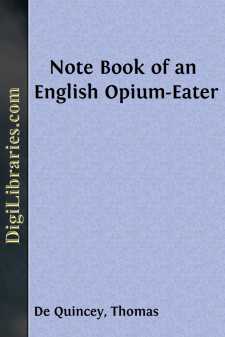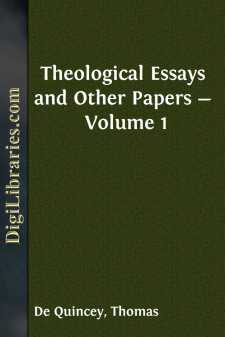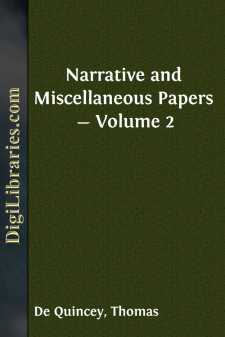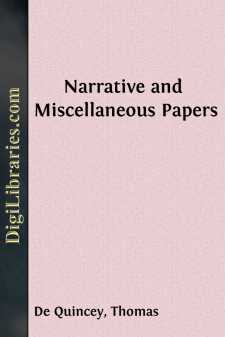Categories
- Antiques & Collectibles 13
- Architecture 36
- Art 48
- Bibles 22
- Biography & Autobiography 813
- Body, Mind & Spirit 142
- Business & Economics 28
- Children's Books 17
- Children's Fiction 14
- Computers 4
- Cooking 94
- Crafts & Hobbies 4
- Drama 346
- Education 46
- Family & Relationships 57
- Fiction 11829
- Games 19
- Gardening 17
- Health & Fitness 34
- History 1377
- House & Home 1
- Humor 147
- Juvenile Fiction 1873
- Juvenile Nonfiction 202
- Language Arts & Disciplines 88
- Law 16
- Literary Collections 686
- Literary Criticism 179
- Mathematics 13
- Medical 41
- Music 40
- Nature 179
- Non-Classifiable 1768
- Performing Arts 7
- Periodicals 1453
- Philosophy 64
- Photography 2
- Poetry 896
- Political Science 203
- Psychology 42
- Reference 154
- Religion 513
- Science 126
- Self-Help 84
- Social Science 81
- Sports & Recreation 34
- Study Aids 3
- Technology & Engineering 59
- Transportation 23
- Travel 463
- True Crime 29
The Uncollected Writings of Thomas de Quincey, Vol. 2 With a Preface and Annotations by James Hogg
Description:
Excerpt
THE ENGLISH IN CHINA.
This Paper, originally written for me in 1857, and published in Titan for July of that year, has not appeared in any collective edition of the author's works, British or American. It was his closing contribution to a series of three articles concerning Chinese affairs; prepared when our troubles with that Empire seemed to render war imminent. The first two were given in Titan for February and April, 1857, and then issued with additions in the form of a pamphlet which is now very scarce. It consisted of 152 pages thus arranged:—(1) Preliminary Note, i-iv; (2) Preface, pp. 3-68; (3) China (the two Titan papers), pp. 69-149; (4) Postscript, pp. 149-152.
In the posthumous supplementary volume (XVI.) of the collected works the third section was reprinted, but all the other matter was discarded—with a rather imperfect appreciation of the labour which the author had bestowed upon it, and his own estimate of the value of what he had condensed in this Series—as frequently expressed to me during its progress.
In the twelfth volume of the 'Riverside' Edition of De Quincey's works, published by Houghton, Mifflin & Co., Boston, U.S.A., the whole of the 152 pp. of the expanded China reprint are given, but not the final section here reproduced from Titan.
The Chinese questions stirred De Quincey profoundly, and roused all the 'John Bullism' of his nature. Two passages from the 'Preliminary Note' will show his object in throwing so much energy into this subject:—
NATIONAL MORALITY.
'Its purpose is to diffuse amongst those of the middle classes, whose daily occupations leave them small leisure for direct personal inquiries, some sufficient materials for appreciating the justice of our British pretensions and attitude in our coming war with China. It is a question frequently raised amongst public journalists, whether we British are entitled to that exalted distinction which sometimes we claim for ourselves, and which sometimes is claimed on our behalf, by neutral observers on the national practice of morality. There is no call in this place for so large a discussion; but, most undoubtedly, in one feature of so grand a distinction, in one reasonable presumption for inferring a profounder national conscientiousness, as diffused among the British people, stands upon record, in the pages of history, this memorable fact, that always at the opening (and at intervals throughout the progress) of any war, there has been much and angry discussion amongst us British as to the equity of its origin, and the moral reasonableness of its objects. Whereas, on the Continent, no man ever heard of a question being raised, or a faction being embattled, upon any demur (great or small) as to the moral grounds of a war. To be able to face the trials of a war—that was its justification; and to win victories—that was its ratification for the conscience.'
CHINESE POLICY.
'The dispute at Shanghai, in 1848, equally as regards the origin of that dispute, and as regards the Chinese mode of conducting it, will give the reader a key to the Chinese character and the Chinese policy. To begin by making the most arrogant resistance to the simplest demands of justice, to end by cringing in the lowliest fashion before the guns of a little war-brig, there we have, in a representative abstract, the Chinese system of law and gospel. The equities of the present war are briefly summed up in this one question: What is it that our brutal enemy wants from us? Is it some concession in a point of international law, or of commercial rights, or of local privilege, or of traditional usage, that the Chinese would exact? Nothing of the kind. It is simply a license, guaranteed by ourselves, to call us in all proclamations by scurrilous names; and secondly, with our own consent, to inflict upon us, in the face of universal China, one signal humiliation.... Us—the freemen of the earth by emphatic precedency—us, the leaders of civilisation, would this putrescent tribe of hole-and-corner assassins take upon themselves, not to force into entering by an ignoble gate [the reference here is to a previous passage concerning the low door by which Spanish fanaticism ordained that the Cagots (lepers) of the Pyrenees should enter the churches in a stooping attitude], but to exclude from it altogether, and for ever....






















